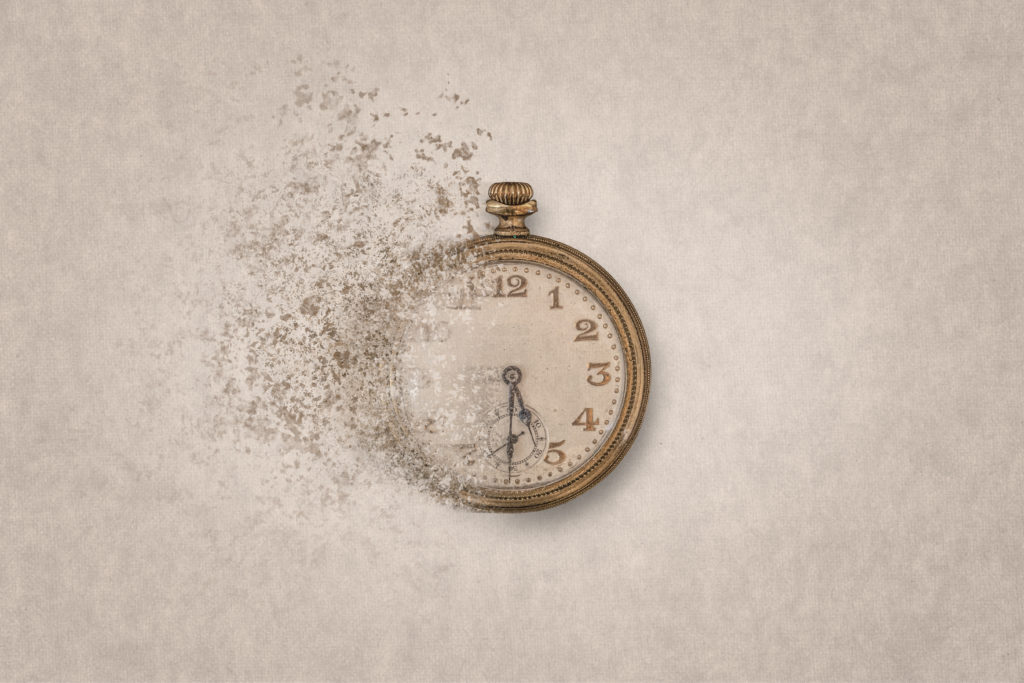GRIEF: Fourteen years after my mother’s death, I find I’m not only grieving her but also my memory of her. I mean that literally, as in, I’m grieving the loss of actual memories as I struggle to really remember her in any tangible way. I want to feel her presence and see her clearly in my mind, but she’s impossible to recreate. She’s more abstract to me now than anything, and that’s gutting.
We always say our grief evolves and grows with us as time goes on. Sometimes that means finding new points of comfort and connection, and sometimes it means stumbling upon new losses. I guess I’ve stumbled again.
As time goes by, I feel so far away and disconnected from the past that I suddenly have an intense yearning to go back. To fill in my spotty memory with the smallest of things, like the smell of my grandmother’s freshly washed towels or the sound of my mother’s voice as she takes the kitchen wall phone off the receiver and says “hello.”
I like many things about my life in the present. But if I could turn around and walk into the past, knowing I’d find my way back here again to the people I love, I’d do it in a heartbeat. No one tells you when you’re young that life can change so much. That one day, you may realize the people and places of your past feel like they’re from a completely different story.
I’m suddenly almost angry that I can’t go back to before. I accept that my mother is dead, but must not fully accept that the past is the past because I keep reaching for it and finding over and over again that it’s gone. It’s a repetitive ache, like the chronic pain of a once broken bone.
People have shared with us that they struggle to remember the past and their loved ones, which is a troubling secondary loss. They connect to an idea of their loved one but struggle to access specific memories of them. Sometimes this is because their memories faded over time and sometimes because they had limited memories in the first place.
I recognize that many people early on in their grief fear this will eventually happen, so I’m sorry if this conversation exacerbates your worry. Remember, there’s no guarantee you will ever feel any particular way in grief. And if you struggle to remember the past someday, know there are many ways to feel psychologically connected to your loved one that can bring you comfort.
All that said, let’s take a few minutes to brainstorm ways to connect with memories of a loved one, especially when you feel disconnected.

Ways to Connect With and Remember the Past
- Watch old videos: Old videos may be the next best thing to revisiting the past because you can actually see and hear your loved ones.
- Look at photos: Photos aren’t quite as dimensional as video, but they can provide a great visual of people and places in the past. Photos also tend to trigger memories you may have otherwise forgotten.
- Write or journal about the past: Try the journaling prompt from our article I Miss the Sound of Your Voice: Grieving Sensory Memory
- Talk to people who knew your loved one or shared your past: Relationships are so unique that each person tends to have a different set of memories related to shared people and places.
- Look at objects or visit places that remind you of the person: Again, sometimes context can trigger memories. Things like being in a place your loved one frequented, holding an object that reminds you of them, looking at their handwriting can help you remember.
Ways to Preserve Present Day Memories
There’s an added layer to this conversation for me. My mother’s death created a framework for understanding loss, and now I see how we all fit within it. I spend the same moments with my kids that I believe my mother spent with me, and they feel so treasured and memorable at the moment. But I think to myself, someday, we may struggle to access memories of these moments. This home that we know every crack and corner of will seem like a place from a dream, and maybe I’ll even be an abstract memory to them.
Maybe you think I sound neurotic, and maybe I’m okay with that. If you have similar struggles, here are a few quick tips for remembering present-day experiences.
- Be present! The number one rule to remembering something is to pay attention to it. If you’re distracted by X, Y, or Z, you will be less likely to remember your experiences later. Put down your phone, tell your brain you’re taking a little time off from worry, and try and live in your experience. I know, easier said than done, but it’s worth a try.
- Keep a journal: We know keeping up with a journaling practice is hard, but journaling has many positive benefits! One is that it’s a record of your life that you can look back on. Throw away your preconceived notions about what it means to be a journaler. You can draw, doodle, write one sentence a day, bullet journal, keep a gratitude journal – whatever works for you.
- Take photos and videos: Preserve memories as often as you can. Though, be careful not to get so caught up in preserving the moment that you sacrifice being present in it.
Do you have a tip for remembering the past or preserving the present? Share it in the comments below.
